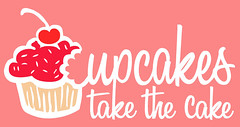What the NYT missed in its Boing Boing/Violet Blue story
Updated 7/8
I’ll preface this by saying that while I intently followed the Boing Boing/Violet Blue story last week, I essentially stopped after the last LA Times Web Scout set of interviews (linked below).
I actually took a break from the internet over the long weekend, and it was lovely. I did read today’s New York Times’s story, but haven’t read any commentary on it save for G4’s (who said that the Times is "actually paying attention," from which I beg to differ), so if these points have already been made, my apologies. Any relevant/interesting links/updates/errors, please do send them to me.
I could've just said that I made a tinyurl for it that sums up what I think: http://tinyurl.com/nytnonstory
I will also say that I have no vested interest in either outcome. In light of this full disclosure-urging post, I will say, I know, like, and respect Violet immensely. She has published my work and vice versa. I read her blog and column and Twitter regularly. I follow Xeni on Twitter, and once in a while I read Boing Boing, usually when it’s about cupcakes, but I’m not a regular user, and have gotten cupcake tips from her and Cory Doctorow, who I met and got an autographed book from at BEA. (I think that about covers everything there.)
I’m not up in arms about what Boing Boing did, but I don’t think it was a well-played move on their part. But that’s not really what I’m interested in right now. Clearly, this is a bigger story than whatever happened or didn't happen between Xeni and Violet, and while much of it is specific to Boing Boing due to its size and influence, I think there are broader issues involved that speak to how other blogs and major websites conduct themselves. But no new issues were presented by the Times piece that I can see, and other than a lackluster summary of the chain of events, they added nothing. And if you agree with me on that, what was the point of such a piece?
That being said, here we go. There are a hell of a lot of things wrong with Noam Cohen’s article, “Poof! You’re Unpublished.” We’ll ignore the fact that this ran on July 7, when the last LA Times blog pieces ran on July 2nd, or the “Freedom of the Press” tag, which I’m not really sure is what we’re talking about.
First of all, what kind of lede is this?
FOR generations, people and institutions have had second thoughts about decisions: stock exchanges delist companies; higher courts overrule lower ones; tennis players do over a disputed point; celebrities reinvent their personalities.
On the Internet, however, we have the technology to act more comprehensively: specifically, to unpublish.
Well, okay, thanks for the news flash that people have second thoughts about things. But I feel like this sets the story up to be about one thing, when really it’s about another. It sets it up to be about erasing information, as if it never existed, when that is not quite the case.
Update: In my original draft, I had this part about how the Times said that Violet was "in the process of trademarking her name," but that I was pretty sure that she had already done so by the symbol next to her name on the front page of her site, and elsewhere, but couldn't find the exact confirmation and this May 2008 AVN article said it's still in process. But Violet confirmed on Flickr that she'd already done so. It's all a blur from law school so I wasn't sure, but I'll add this to the list.
Problems with the article:
But when one popular Web site, Boing Boing, was recently discovered to have unpublished all references to a blogger named Violet Blue, some of its readers treated the decision as a step of utmost consequence, even though it took place about a year ago.
Violet’s original claim was that Boing Boing had removed all posts referring to her except one. I don’t have that single post link handy at the moment, so I’m not sure if it’s still active, but that was the claim.
Also, it’s a little disingenuous to tack on the “even though it took place about a year ago,” when people are just finding out about it now. Surely, if they’d known about it then, it would have provoked the same reactions. So the issues is not just that they unpublished the work, but that they did not publicly state they were doing so or comment on it in any way. Had they done so, it may have provoked a similar outcry, but maybe it wouldn't have.
In its online edition, the Times chose to link to Boing Boing (it also spells out the URL, presumably also in print, which I haven’t seen), but not to Violet’s blog, or, more obnoxiously, to the LA Times Web Scout blog which it relied on for its figure of “at least 70 or so posts.” When Violet is claiming that there were even more than that, you might think the Times would look into doing some original reporting.
I’m well aware that the New York Times is not a blog, but a newspaper, but to not provide the Web Scout link is sloppy and rude. And to not link to Violet’s site (which they could have just said was NSFW) when identifying her as a blogger also doesn’t serve their readers, though the same could be said for countless NYT pieces, including the one I was quoted in, about my cupcake blog. But, okay, we get it, the Times wants to endlessly write about blogs and here, use them as a source, but only occasionally link to them.
The main issue I have with the article, though, is that it doesn’t mention anything about the fact that you can still access this material, in this case via the Wayback Machine, which Boing Boing at least alluded to in their post. It also didn’t mention that now you can find all those cached posts at the site Ed Hunsiger last week created www.violetbluevioletblue.net (thanks to Aaron Landry for first alerting me to it), which he was able to do because of the Creative Commons license on Boing Boing’s posts. The fact that this material was unpublished from Boing Boing is true, but it was not unpublished from the entire internet. That is neither here nor there when it comes to Boing Boing’s decision and its implication, but it is crucial when talking about the idea of erasing a website’s history, which is what Cohen touches on multiple times in his piece:
One moment there is material on a Web site, the next moment it’s gone, and in such a way that nobody would guess it had existed.
And:
The twist, of course, is that for nearly everyone who lives with what the Internet says about them, being unpublished would seem a dream come true. Those photographs from the frat party can be unpublished? Who knew? The essay to the Mickey Mouse Fan Club, too?
And the most indecipherable (to me) paragraph:
For all the damage to reputations the Internet can cause, perhaps the greater anxiety from online communication is the weightlessness of it all. The whole World Wide Web can seem like a hall of mirrors — nothing tangible, no binding, no watermarks, no notary public seals. Where, exactly, is it? How do we know any of it is true?
Again, not only don’t I understand the above paragraph’s language, but I think it’s disingenuous. Whether what Boing Boing did was right or wrong is one issue, but in condescending to its readers, or perhaps speaking to ones who’ve never heard of Boing Boing, Violet Blue or, like, the internet, they are giving the impression with the above statements that these posts have entirely disappeared from public view.
Also, I think the issue is not simply that the posts were unpublished, but that that was done silently. The one hint of asking some important questions the Times does is:
Was Boing Boing deceiving its loyal audience by silently deleting the material, even if no one noticed the absences until a year later? What does it even mean to deceive an audience when it comes to a catalog of one’s personal writings? And does popularity convey different responsibilities to the people who produce a Web site?
But it doesn't ask anyone for an outside perspective, or really try to answer these questions, except for quoting Violet and Xeni, who both say pretty much the same things they each said to Web Scout.
Other things the Times missed:
Rex Sorgatz provided an example last week of Boing Boing taking down a post referencing him after he was critical of them. A question for some reporter to maybe ask Boing Boing is how common this is, or to go out and find other people who share a similar situation. I would imagine there are other people besides Violet and Rex to make a claim like this. If they are right that it’s about more than Violet Blue vs. Boing Boing, tell us how.
How have other high-profile sites dealt with this issue?
What other ways could Boing Boing have done this without incurring the wrath of so many commenters?
Beyond Violet herself, does a site like Boing Boing "owe" traffic to people? (Tony Comstock tackles this issue.)
There are a lot of issues at stake here, and I realize they couldn't tackle them all, but in my opinion, they didn't tackle any. Instead, they obscured some of the bigger points and just regurgitated a lot of things that were already stated.
And next up, though probably not until the end of the week because I am buried in work and have spent way too much time on this (did I say I wasn't blogging anymore? Actually, I said I was "laying low," and socially I have been; my laptop is my new BFF), I will share my thoughts on finally seeing the Sex and the City movie (yesterday), whether cupcake blogging is "safer" than personal blogging, and Emily Gould’s book deal and its discontents.
Labels: blogs, Boing Boing, journalism, New York Times, Violet Blue























 The Big Book of Submission: 69 Kinky Tales
The Big Book of Submission: 69 Kinky Tales




 Flying High: Sexy Stories from the Mile High Club
Flying High: Sexy Stories from the Mile High Club
















2 Comments:
I should point out that Rex's reasoning for why boingboing pulled the post referencing him was speculation -- he has not actually established that they removed the post because he had been mildly critical of them, or were even aware of his criticism.
Hello Rachel and thanks for the mention!
Does Boing "owe" people traffic? Probably the wrong word. But if the editors of Boing hope that folks like me will send them well-research, ready to publish tip, they're going to have to offer something in return. I did send Xeni the "girth" story because she's my best friend, or because I get a woody when we get a mention on Boing. I did it for the link, and the attendant benefits that link has on my ability to keep making the films I want to make. If I can count on that, Boing is useless to me.
Post a Comment
<< Home